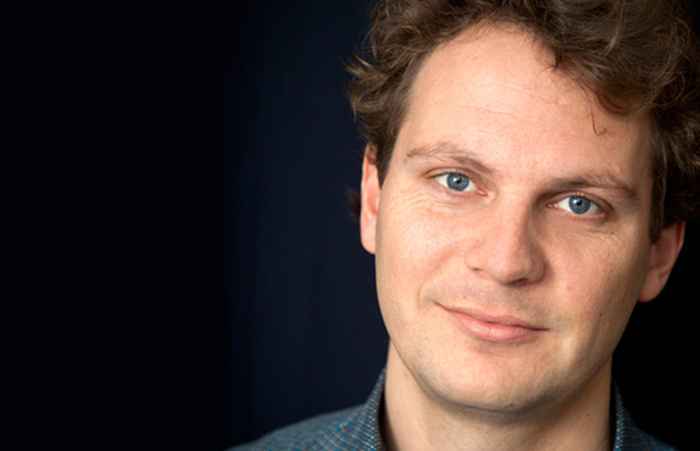Fundamental change in financial power structures
8 June 2021

These days, companies are usually no longer based in one location, but often consist of several subsidiaries that are spread around the world and are interconnected with each other and with other companies. Who holds the power and influence within this global network? This is what political economist Eelke Heemskerk and his team have been researching for the past seven years within the CORPNET project, supported by an ERC Starting Grant from the European Research Council. Heemskerk shares some of the highlights of the discoveries they made during those years.

Financial networks exposed at an unprecedented level
'Even before 2014, I was studying business networks and how they affect how companies are run. In 2014, CORPNET allowed that research to be taken to the next level. During that period, large amounts of data became available about companies worldwide, such as information about who exactly the managers and shareholders were. This prompted the launch of a unique collaboration between social scientists, computer scientists and data scientists. By processing and enriching the data of 200 million companies and combining knowledge from the various disciplines, we were able to map global financial networks that had previously been invisible at an unprecedented level of detail.’
Significant concentration of power
‘We began our analyses in 2014 and saw the first results as early as 2016 – which were pretty shocking to us. The vast majority of shares in US listed companies were found to be held by just three major US asset managers: Blackrock, Vanguard and State Street. This was all related to the rise in passive investments in the aftermath of the 2008 financial crisis.’
‘Passive funds do not involve the active buying and selling of certain shares; instead baskets are created into which the shares of several major businesses, such as the AEX or the S&P500, are collected. The enormous growth in this market and the huge concentration in only three passive asset managers have fundamentally changed financial power structures. This discovery triggered a lot of public and political debate about the dominant role of these companies, as well as debate within these companies themselves, and how this power should be used.’
The Netherlands as a transit country
‘Another key finding came out of our research into global financial flows and how money is moved within and between companies. We already knew which countries were tax havens. However, for the first time we were able to map out the network that companies use to get their money there. Using our global datasets, we were truly able to see below the water line and expose how companies use all kinds of structures to make the most out of their money. This allowed us to empirically identify not only the tax havens, but also the major transit countries that are crucial in facilitating tax avoidance. The Netherlands is at the top of that list.’
Networks of corporate elites concentrated within countries and regions
‘We also looked at the social networks that the business elite, the top executives, set up between the boardrooms of large corporations, for example, because they sit on several supervisory boards. This showed that despite the globalisation of the economy, the networks of the business elite are mainly concentrated within specific regions, and have a relatively limited global reach. As a result, global competition between countries and regions within this elite network remains.'
‘The position of countries themselves was also highlighted in our research into the role of governments as shareholders of companies beyond their own borders. Here, too, there is an international network that features players such as China, as well as Germany and France. As such, there is a continuous interplay between governments and companies in which sometimes one and sometimes the other has the most power and influence.’
Fundamental shift in nature of global business network
‘To summarise, we were primarily able to identify how the nature of the corporate network has fundamentally changed worldwide. Ownership has become concentrated and a number of American players have a strong steering influence, a role that these companies themselves are also struggling to cope with.’
Computational Social Science
‘CORPNET has also allowed us to boost Computational Social Science, which is a field where the skills and knowledge of social scientists and computer scientists come together and reinforce each other. It involves scientists who are, for example, very good at exposing networks engaging with scientists who are able to ask critical questions about these networks. One of the spin-offs of the project is the new Bachelor’s programme in Computational Social Science that is set to start in September 2022.’
Sustainable financing
‘The next step we want to take is to examine how these new power structures are able to provide opportunities for sustainable change. The call for a sustainable economy is growing louder and louder, and so it is in the interest of these companies to respond to this. In addition, companies that have a lot of power are able to alter their course more significantly. Naturally, a large concentration of power can be threatening, but as long as it is not too large, it can also be a way to bring about change.’
Further reading
If you would like to find out more about the results of this study, please visit the publication page of the CORPNET project or visit their newsblogs.